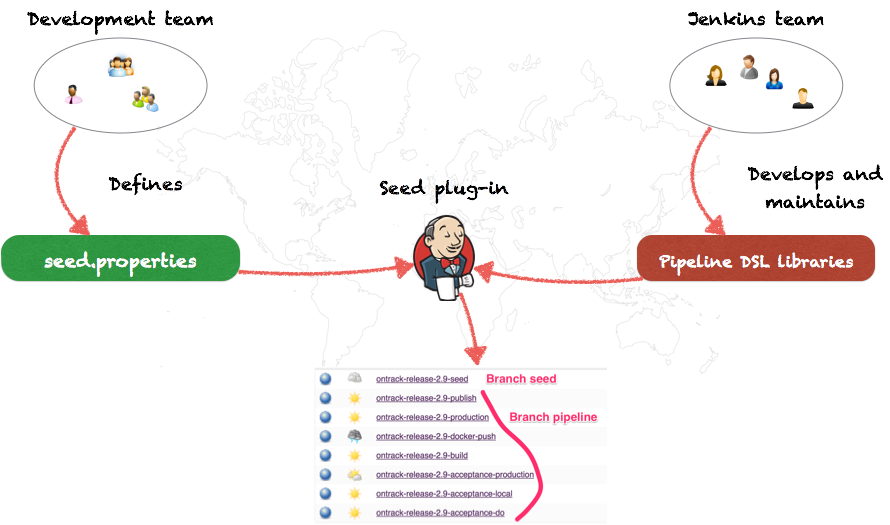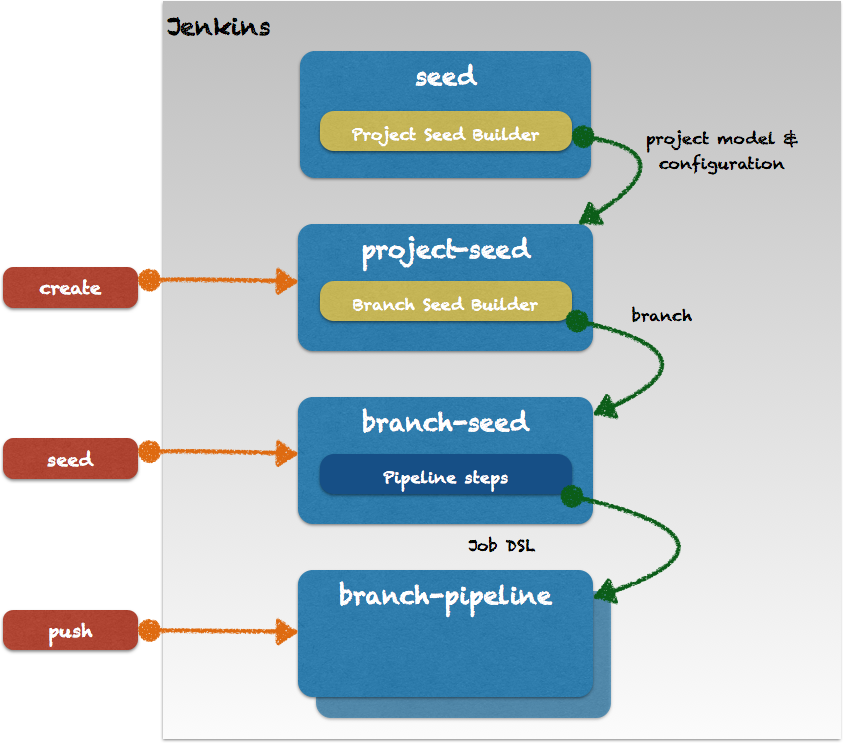-
Notifications
You must be signed in to change notification settings - Fork 11
Home
The Seed project aims to help automating the generation and management of pipelines for branches of a project in Jenkins.
Quick links:
Before diving into the documentation, you can also watch the following video material:
- Jenkins User Conference, London, June 2015
- BruJUG presentation, Brussels, March 2016
- All Day DevOps 2016
The Seed plug-in allows a separation a responsibilities:

- the Jenkins team designs and tests pipeline libraries...
- the development teams use and configure those pipeline libraries for their projects.
Its behaviour is illustrated by the diagram below:

- having an initial Seed job to generate/update Project seed jobs
- each project is hold in its own folder
- the Project seed job is used to generate/update one Branch seed job for a given branch
- each branch is hold in its own folder
- the Branch seed job is used to generate/update the pipeline for the branch
Those jobs can be triggered automatically when some events are received on some connectors. Three connectors are supported by default: GitHub WebHooks, BitBucket WebHooks and HTTP. Other can be added using extensions.
Note that the names and contents of the different levels of seed jobs can be configured to suit your needs.
See the following sections for more information:
- Installation
- [Quick start](Quick start)
- Configuration
- Generation of pipelines
- Triggering of pipelines
- Development
- Extensions
This documentation is suitable for the versions 1.x and 2.x of the Seed plug-in. For the migration from the versions 0.x, please look at this [link](Migration from 0.x).